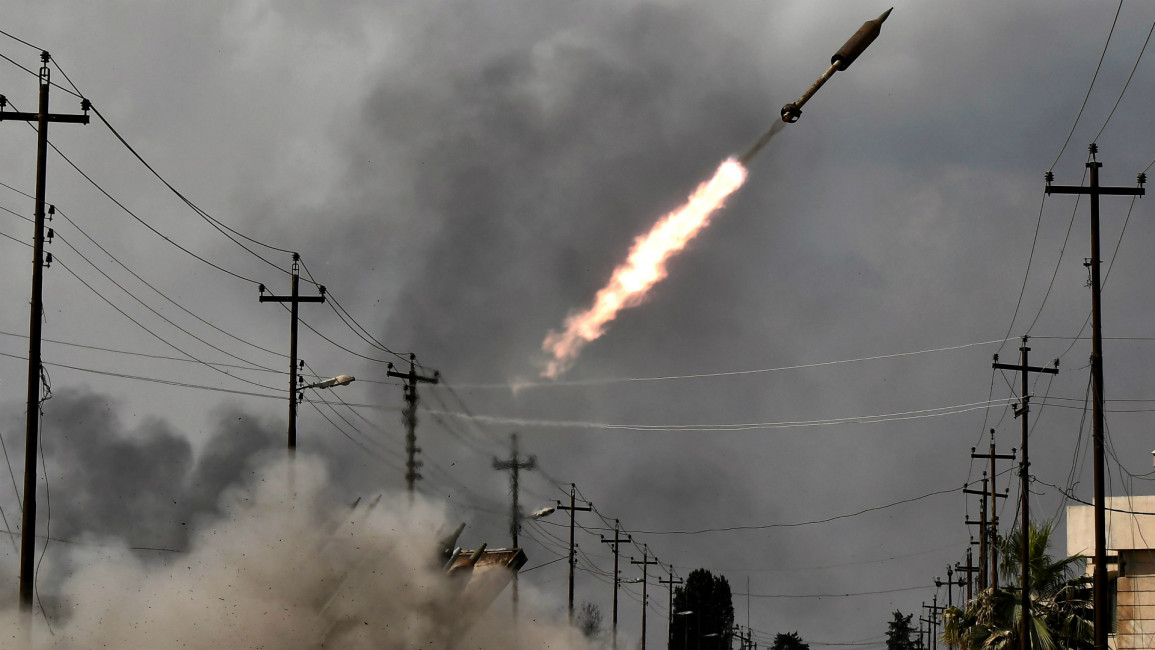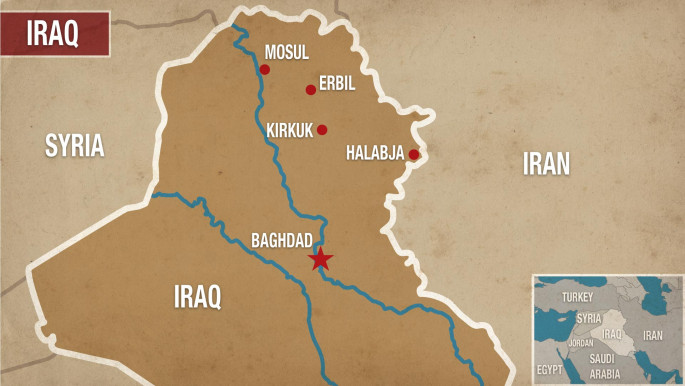Iraqi forces 'using imprecise Iranian missiles' in Mosul battle
Iranian missiles are being used by Iraqi forces in the battle to capture Mosul, an Iraqi politician told The New Arab, who said Iraqi Prime Minister Haider al-Abadi must be held accountable for the recent massacre that killed hundreds of civilians in Old City district of Mosul.
"The Iraqi government is unable control the military's leadership," Atheel al-Nujaifi, former governor of Mosul said, adding that "The Iranian missile launchers used in the battle for Mosul are imprecise", risking civilian lives.
Nujaifi said Abadi was "morally responsible for the Mosul massacre," adding that the city of Mosul has seen destruction and damage for over two years and Baghdad must allocate funds to rebuild it.
Colonel Fawzi al-Hassani, commander of the Nineveh Operations, in comments on Nujaifi's remarks, said that "Missiles from a number of countries, including Iran and the US, were sent to the Iraqi army".
Hassani told The New Arab Qaher-1 ballistic missiles, with a range of 500 kilometres, were handed over to the Iran-linked Hashd al-Shaabi militias, who have not been heavily involved in the Mosul offensive.
The Hashd al-Shaabi were mobilised to defend Baghdad after the Iraqi army's collapse in the north as the Islamic State [IS] swept through the country.
However, the militias have also been linked to a number of massacres and human rights abuses during Baghdad's efforts to liberate mostly Sunni northern Iraq from IS.
Recent reports from Baghdad also indicate the presence of Iran's Revolutionary Guards in the battle of Tal Afar west of the city, as well as other areas in south-west Mosul.
Last month, Iran officially announced the death of an officer from the Revolutionary Guards in west Mosul.
Baghdad continues to deny the presence of Iranian fighters on the ground in the battle to recapture Mosul.
The embattled city fell to IS grip in 2014.
As many as 3,864 civilians have been killed in western Mosul since mid-February, when the Iraqi army began the wide-ranging campaign to take back the area.
The UN has warned that about 600,000 people remain in the areas of west Mosul held by IS, including 400,000 who are "trapped" in the Old City under siege-like conditions.




